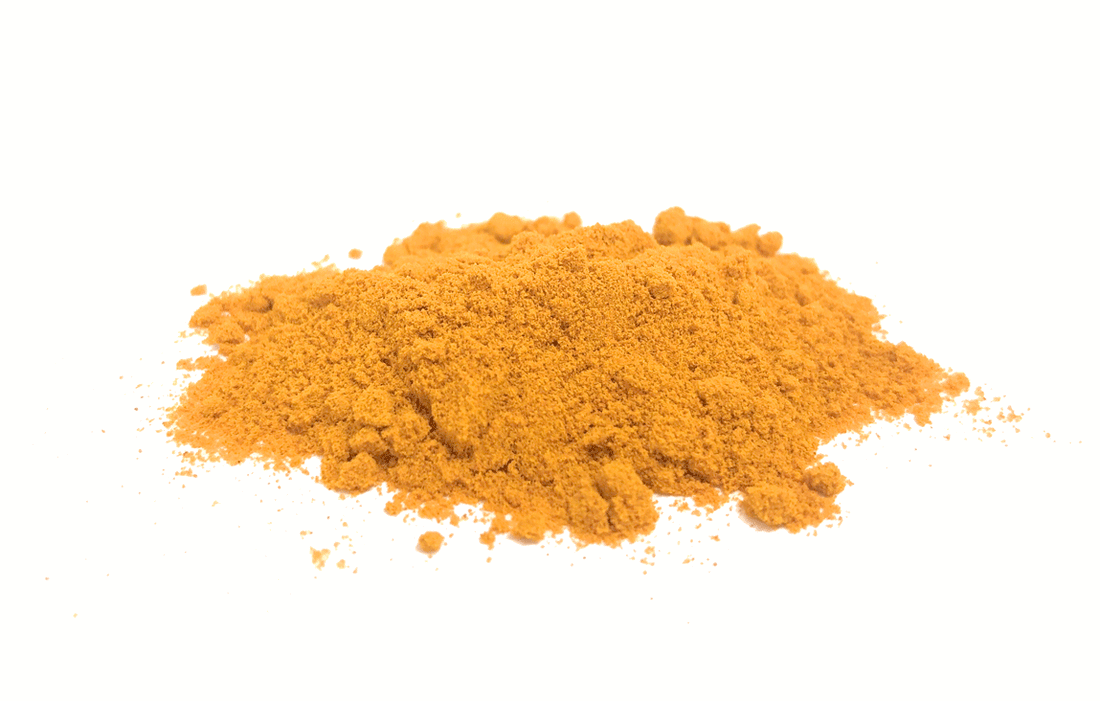Turmeric, scientifically known as Curcuma longa, is a vibrant yellow-orange spice commonly used in culinary dishes, traditional medicine, and skincare products. It has been a staple in Indian and Asian cuisines for centuries and is gaining popularity worldwide due to its potential health benefits. This article explores the uses, benefits, and methods of incorporating turmeric into your daily routine.
Uses of Turmeric
Turmeric has a wide range of uses in different areas. Here are some common uses of turmeric:
Culinary Uses
Turmeric is primarily used as a spice in cooking. It adds a distinct flavor and vibrant yellow color to dishes. It is a key ingredient in curry powders and is used in various Indian, Middle Eastern, and Asian cuisines. Turmeric can be used in curries, stews, soups, rice dishes, marinades, and pickles.

Natural Food Coloring
Turmeric's bright yellow color makes it a natural food coloring agent. It is used to give a yellow tint to foods like sauces, mustards, dressings, and baked goods.
Traditional Medicine
Turmeric has been used for centuries in traditional medicine systems like Ayurveda and traditional Chinese medicine. It is believed to have numerous health benefits and is used to treat various ailments. It is used internally as well as externally in the form of poultices or pastes.
Herbal Supplements

Turmeric is available in supplement form, usually as capsules or tablets. These supplements are often standardized for curcumin content and are taken for their potential health benefits, such as reducing inflammation and supporting overall well-being.
Skincare
Turmeric is used in skincare products for its potential benefits for the skin. It has antibacterial, anti-inflammatory, and antioxidant properties that may help with acne, brighten the complexion, and promote healthy skin. It is used in face masks, creams, lotions, and soaps.
Natural Dye
Turmeric can be used as a natural dye for fabrics, yarns, and even Easter eggs. Its vibrant yellow color can be extracted by boiling turmeric powder or fresh turmeric in water and then soaking the material in the resulting liquid.
Health Drinks and Tonics

Turmeric is often used in health drinks and tonics. One popular example is "golden milk" or turmeric latte, which is a warm beverage made by mixing turmeric powder with milk (dairy or plant-based) and adding sweeteners and spices like cinnamon or ginger.
Herbal Remedies
Turmeric is used in various herbal remedies and preparations to alleviate symptoms for conditions like indigestion, arthritis, liver disorders, and skin problems. It is often combined with other herbs and spices to enhance its effects.
Benefits of Turmeric
Turmeric offers numerous potential benefits due to its active compound called curcumin. Here are some of the key benefits associated with turmeric:
Anti-Inflammatory Properties
Curcumin, the main active ingredient in turmeric, has powerful anti-inflammatory properties. It inhibits the activity of inflammatory enzymes and molecules in the body, helping to reduce inflammation. Chronic inflammation is linked to various diseases, such as arthritis, heart disease, and many other health issues.
Antioxidant Effects
Turmeric contains antioxidants that help protect the body against free radicals. Free radicals are unstable molecules that can cause oxidative stress and damage to cells. The antioxidants in turmeric neutralize these free radicals, helping reducing the risk of chronic diseases and supporting overall health.
Digestive Health
Turmeric has traditionally been used to aid digestion. It stimulates the gallbladder to produce bile, which aids in the digestion of fats. Turmeric may help relieve symptoms of indigestion, bloating, and gas. It is also used to support liver health and improve overall digestion.
Joint Health and Arthritis Relief
Turmeric's anti-inflammatory properties it may benefit those with joint conditions like arthritis. It may help reduce joint inflammation, alleviate pain, and improve joint flexibility and function. Many people find relief by incorporating turmeric into their diet or taking curcumin supplements.
Brain Health and Cognitive Function
Curcumin has shown potential in supporting brain health and cognitive function. It may help improve memory and attention, and it has been studied for its potential role in preventing or delaying neurodegenerative diseases like Alzheimer's and Parkinson's disease. More research is needed to understand its full effects.
Skin Health
Turmeric is used in skincare for its potential benefits for the skin. Its anti-inflammatory and antioxidant properties may help reduce acne, calm skin irritations, and promote a healthy complexion. It may also help in reducing the appearance of dark spots and promoting a youthful glow.
Heart Health
Some studies suggest that curcumin may have cardiovascular benefits. It may help improve blood vessel function, reduce cholesterol levels, and lower the risk of heart disease. However, more research is needed to establish the extent of its effects on heart health.
How to Use Turmeric
Golden Milk/Turmeric Latte
Mix turmeric powder with warm milk (dairy or plant-based) and add a sweetener like honey or maple syrup for a soothing and nutritious drink.

Curry and Spice Blends
Use turmeric as a primary ingredient in curry recipes, spice blends, or marinades for meats, vegetables, and tofu.
Turmeric Tea
Steep turmeric powder or grated fresh turmeric in hot water and add lemon or ginger for extra flavor.
Turmeric Supplements
Turmeric is available in supplement form, often as capsules or liquid extracts. Consult a healthcare professional before starting any new supplements.
Conclusion
Turmeric is a versatile spice that offers various culinary, medicinal, and skincare benefits. Its active compound, curcumin, exhibits anti-inflammatory and antioxidant properties. Incorporating turmeric into your diet by using it in cooking or enjoying it as a warm beverage like golden milk may provide you with its health benefits. However, it is important to note that while turmeric has promising potential, it should not replace medical treatment or professional advice. If you have any specific health concerns, consult with a healthcare professional before incorporating turmeric into your routine.
Nataly Komova, fitness and nutritionist expertHuman Nutrition & Health, BSc Hons
To learn more about the writer visit their website.







